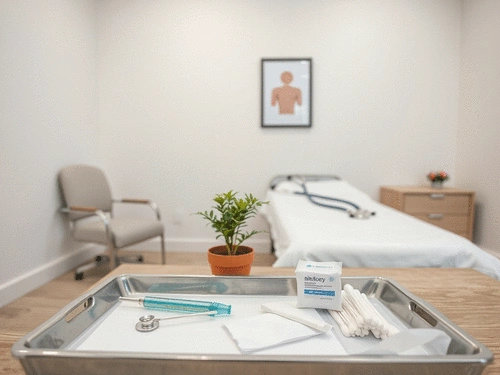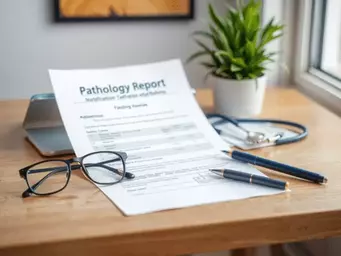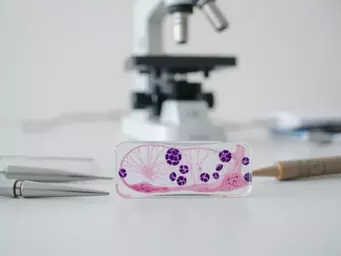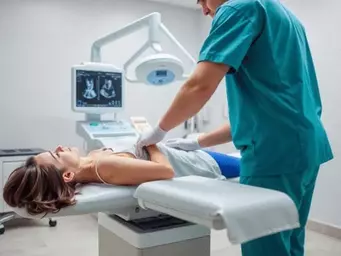Think of a biopsy as a small step towards getting big answers about your health. Understanding the preparation process can not only ease your anxiety but also empower you to take control of your healthcare journey.
What You Will Learn
- Biopsies are crucial for diagnosing conditions like cancer, infections, and autoimmune disorders.
- Different types of biopsies serve specific purposes, including needle, surgical, and skin biopsies.
- Effective communication with your healthcare provider can significantly enhance your biopsy experience.
- Following preparation guidelines, such as dietary restrictions and medication management, is essential for a smooth procedure.
- Understanding tissue diagnosis is important, as it determines the next steps in your treatment plan based on biopsy results.
- Accessing resources and support networks can provide reassurance and valuable information throughout your biopsy journey.
- As a patient, you have the right to be informed and ask questions, ensuring your safety and understanding during the biopsy process.
Understanding Biopsy Preparation: A Visual Guide
Preparing for a biopsy can feel daunting, but understanding the process and key steps can significantly reduce anxiety. This visual guide highlights the essential stages and types of biopsies.
Why a Biopsy is Done: Key Diagnostic Reasons
Confirm or rule out cancer
Investigate infections or inflammatory conditions
Assess cause of abnormal tissue growth
Common Biopsy Types
Needle Biopsy
Surgical Biopsy
Skin Biopsy
Essential Preparation Tips
Communicate pre-existing conditions
Prepare medication list
Ask about dietary restrictions
Key Takeaways for a Smooth Biopsy Experience
Communication is Key
Follow Prep Guidelines
Understand the Procedure
Reach Out for Support
Understanding Biopsy Preparation and Its Importance
When it comes to biopsy procedures, the term itself might feel overwhelming. However, understanding the importance of preparation can significantly ease your anxiety. A biopsy is a medical procedure where a small sample of tissue is taken from the body for diagnostic purposes. This process allows healthcare professionals to determine the nature of any suspicious growths or abnormalities, as explained further by Penn Medicine. By being prepared, you can help ensure that the procedure goes smoothly and that you feel more at ease.
Many patients ask, “Why is a biopsy done?” The answer typically revolves around diagnosing diseases, including cancer, infections, or autoimmune disorders. This small step can lead to big answers about your health, guiding your treatment options moving forward. Understanding what a biopsy entails can empower you to navigate this experience with confidence!
What Is a Biopsy and Why Is It Done?
A biopsy is a procedure where a doctor removes a small amount of tissue to examine it under a microscope. This examination can reveal crucial information about your health. Biopsies are often performed when imaging tests, like X-rays or MRIs, indicate something abnormal that needs further investigation, as detailed by RadiologyInfo.org. Knowing the reasons behind a biopsy can help alleviate fears and clear up misconceptions about the procedure.
- To confirm or rule out cancer
- To investigate infections or inflammatory conditions
- To assess the cause of abnormal tissue growth
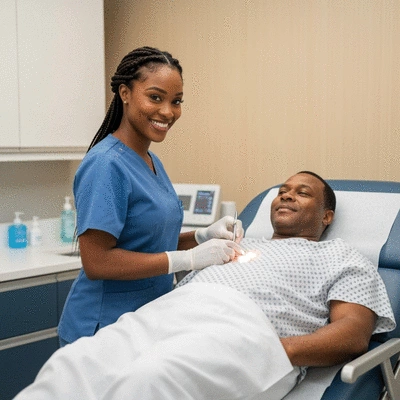
The results of a biopsy play an essential role in guiding your treatment options. For instance, if a biopsy indicates cancer, your healthcare provider can recommend the best course of action tailored to your needs. This personalized approach is an important aspect of your healthcare journey!
Common Types of Biopsies Explained
Biopsies come in various forms, each designed to provide specific information depending on the area being examined. Here are some common types of biopsies:
- Needle Biopsy: Involves using a thin needle to extract a tissue sample.
- Surgical Biopsy: A more invasive procedure where a larger sample is removed during surgery.
- Skin Biopsy: Primarily used to examine skin lesions or rashes.
Each type of biopsy has its own set of indications, risks, and benefits. By discussing with your healthcare provider, you can understand which biopsy type is most appropriate for your situation. This knowledge will help you feel more in control during your procedure.
Understanding the Role of Tissue Diagnosis in Biopsy
Once your biopsy sample is collected, it is sent to a laboratory for analysis. This process is known as tissue diagnosis, and it plays a crucial role in identifying the underlying issues affecting your health. A pathologist, like myself, examines the tissue sample under a microscope, looking for abnormalities that might indicate a disease.
- Pathologists assess cellular structures and growth patterns.
- They identify whether the cells are benign or malignant.
- Diagnosis helps determine the next steps in your treatment plan.
Receiving the results can be an anxious time, but remember, the purpose of the biopsy is to provide clarity. Understanding how tissue diagnosis works can help you appreciate the significance of this important step in your healthcare journey!
Essential Preparation Tips for Your Biopsy
Preparation is essential for ensuring a smooth biopsy experience. By following these essential tips, you can set yourself up for success. Each biopsy may have specific instructions from your healthcare provider, but there are general guidelines that apply to most procedures.
- Communicate any pre-existing conditions to your doctor.
- Prepare a list of medications you are currently taking.
- Ask about dietary restrictions prior to your biopsy.
By actively participating in your preparation, you not only feel more empowered but also contribute to a more seamless biopsy process. Remember, the goal is to make this experience as comfortable as possible!

Pro Tip
Did you know? Preparing a list of questions for your healthcare provider before your biopsy can significantly enhance your understanding of the procedure. It’s a great way to address any uncertainties and ensure you feel confident going into your appointment!
Frequently Asked Questions About Biopsy Preparation
- What is the main purpose of a biopsy?
- A biopsy is primarily done to diagnose or rule out various conditions, such as cancer, infections, or inflammatory conditions, by examining a tissue sample under a microscope.
- What are the common types of biopsies?
- Common types include needle biopsies (using a thin needle), surgical biopsies (removing a larger sample during surgery), and skin biopsies (for skin lesions).
- Why is communication with my doctor important before a biopsy?
- Effective communication ensures your doctor is aware of your pre-existing conditions and current medications, allowing them to provide specific instructions and minimize risks during the procedure.
- Are there any dietary restrictions before a biopsy?
- It depends on the type of biopsy. It's crucial to ask your healthcare provider about any specific dietary restrictions you need to follow prior to your procedure.
- What is the role of tissue diagnosis?
- Tissue diagnosis involves a pathologist examining the biopsy sample to identify abnormalities, determine if cells are benign or malignant, and guide the next steps in your treatment plan.
Summarizing Your Biopsy Preparation Journey
As you’ve navigated through your biopsy preparation, it’s essential to reflect on the key aspects that can ensure a smooth experience. Understanding what to expect and being well-prepared can significantly alleviate anxiety and enhance your confidence as you approach this important step in your healthcare journey. Let’s recap some vital points!
Key Takeaways for a Smooth Biopsy Experience
- Communication is Key: Always talk openly with your healthcare provider about any concerns or questions you have.
- Follow Prep Guidelines: Adhering to dietary restrictions and medication instructions can make a big difference. Instructions for specific biopsies, such as lung biopsies, can be found from sources like Stony Brook Medicine.
- Understand the Procedure: Knowing what to expect during the biopsy helps calm your nerves.
- Reach Out for Support: Don’t hesitate to lean on family, friends, or support groups for encouragement.
By keeping these takeaways in mind, you can approach your biopsy with a sense of readiness. Remember, each step you take in preparation contributes to a more comfortable experience!
Taking the Next Steps: Resources and Support
Once you’ve completed the preparation for your biopsy, it’s time to think about the next steps. Access to resources and support networks can make a significant difference in your journey, both before and after the procedure. Here are some options that might be helpful.
Finding Further Information and Support Groups
- Local cancer support centers often provide resources tailored to patients undergoing biopsies.
- Online forums can connect you with others who have experienced similar procedures.
- Your healthcare team may offer brochures or references to educational materials.
- Consider reaching out to organizations focused on patient education, such as What Is A Biopsy, for reliable information.
Utilizing these resources can help you feel more informed and less isolated as you prepare for your procedure. Remember, you’re not alone—many people share similar experiences, and support is always available.
Encouragement and Final Thoughts for a Confident Procedure
As you prepare for your biopsy, keep in mind that it’s a proactive step toward understanding your health better. I want to encourage you to embrace this journey with confidence. You’ve done your homework, asked questions, and taken the necessary steps to prepare. You deserve to feel empowered throughout this process!
Whenever you’re feeling uncertain, just remind yourself that knowledge is power. Every bit of information you gather helps create a clearer path for your healthcare decisions.
Understanding Your Rights: Informed Consent and Patient Safety
Lastly, it’s essential to talk about your rights as a patient when it comes to biopsy procedures. Before your biopsy, you will typically be asked to provide informed consent. This means you have the right to understand the procedure, including its purpose, risks, and benefits. Never hesitate to ask for clarification if something isn’t clear.
- Right to Information: You should receive all necessary information about the biopsy.
- Right to Ask Questions: If you're unsure about anything, speak up!
- Right to Safe Care: Your healthcare team is there to ensure your safety before, during, and after the procedure.
By being informed and actively participating in your care, you enhance your safety and well-being. Remember, I’m here to help guide you through every aspect of this experience! Let’s take this journey together with understanding and confidence.
Recap of Key Points
Here is a quick recap of the important points discussed in the article:
- Importance of Preparation: Being well-prepared can ease anxiety and ensure a smoother biopsy experience.
- Types of Biopsies: Familiarize yourself with different biopsy procedures, such as needle, surgical, and skin biopsies.
- Effective Communication: Always discuss any concerns or questions with your healthcare provider to enhance your understanding.
- Follow Pre-Procedure Guidelines: Adhere to dietary restrictions and medication instructions for optimal results.
- Understand Your Rights: You have the right to be informed and to ask questions about your procedure.

